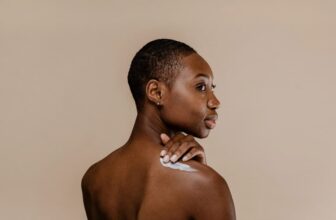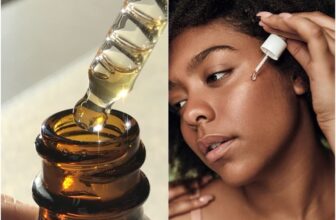Beyond the impeccable natural beauty of a woman, there’s a reason we always clamor for eyelash fixies. You want it looking fuller, thicker and extra-long a la Cardi B. But unfortunately, many of us seem to ignore the reason why there’s a lack of adequate lashes on some women — a term medically coined as eyelash hypotrichosis.
Defined as having lower than average length, thickness and/or a number of eyelashes, no one could certainly be blamed for this. But according to research, the causes of eyelash hypotrichosis could be traced to hereditary, aging, chemotherapy, other medical treatment, and unknown causes. Physical trauma involving the face, eye surgery, and trichotillomania may also cause thin or absent lash growth.
Another research also suggests that during the period of pre-menopause in women density of estrogen in the blood lowers with the natural rise of androgen concentration, which might be the cause of androgenic hair loss.
In other to address this eyelash beauty conundrum, we collaborated with Forhers, which, through its generosity brought Dr. Sandy Skotnicki (a Toronto-based dermatologist, and skin allergy expert) on the table to shed more light on eyelash hypotrichosis.
Having backed up by scientific evidence, Skotnicki does not only talk about how we can naturally grow stronger, fuller lashes, but how can also care for our lashes, what to avoid and everything in between. Below, continue scrolling to read Skotnicki’s interview and ensure to pay full attention.
Question: In terms of diet, what can we do to naturally grow stronger, fuller lashes? What foods should we be eating, and what in those foods is helping hair growth? How does that process work?
Eyelashes are continuously lost and replaced. The growth phase is typically around 3 months and then the hair follicle sheds the hair and a new one grows. A diet with supplements that help with hair growth would be beneficial but the science is scant.
Unfortunately, there is a lot of information on the internet about biotin in the diet (eggs are high in biotin) as well as biotin supplements for hair growth – but there is little scientific evidence that biotin improves hair growth in normal individuals.
There is some evidence that selenium may help hair growth. A study showed newly forming hairs take up selenium after receiving trace elements in the blood. Brazil nuts are rich in selenium. But too much selenium can make hair brittle.
Vitamin D can be helpful in patients who have hair shedding on the scalp. The research is unclear for eyelashes. Foods high in vitamin D include fatty fish, beef liver, cheese, and mushrooms.
At the present time, there is insufficient research to suggest zinc, riboflavin, folic acid or Vit B 12 rich foods help with hair growth.
Question: How can makeup affect the health of our lashes? What steps can we take to prevent negative effects, and are there specific ingredients we should avoid? Are there any types of makeup or ingredients that are healthful for our lashes?
Mascara can damage the eyelashes if not removed nightly and it builds up. It can lead to loss of eyelashes. Using eyelash curlers that are not cleaned can also lead to loss as the eyelashes can stick. I counsel to avoid extensions, the glue can lead to loss of natural eyelashes and at times allergic reactions. Some oils can moisturize the eyelashes like castor oil but there is no evidence they lead to increased growth.
Question: Why is using an eyelash comb important? What does an eyelash comb actually do in terms of making your lashes more luscious?
Why is using an eyelash comb important? What does an eyelash comb actually do in terms of making your lashes more luscious?
Question: Why is using an eyelash comb important? What does an eyelash comb actually do in terms of making your lashes more luscious?
Why is using an eyelash comb important? What does an eyelash comb actually do in terms of making your lashes more luscious?
Question: How effective are the following home remedies to apply to the eyelashes for growth? Which ones might actually help, and which ones should be avoided?
Moisturizing your eyelashes just like your hair can make it more subtle and if it is less dry or brittle will keep it healthier. Avoid products with a multitude of ingredients that could irritate the delicate eye area.
Castor oil is a good option for moisturizer. But there is no scientific data to support the use of vaseline for prevention of eyelash loss or to help the eyelashes grow longer. Applying vaseline around the eyes can cause inflammation/irritation for some people.
As for Olive oil/castor oil, Dr. Sandy said: “it is really the only herbal treatment shown in limited research to potentially improve hair loss and women use it for regrowing eyelashes and eyebrows.”
Question: Is there anything else that people tend to forget about eyelash health that you’d like to comment on?
Latisse or the drug Bimatoprost can thicken and lengthen fine hairs – eyelashes and in some cases eyebrows when used regularly. This is because the hair follicle stays in a growth cycle for a longer period of time before it is shed.






